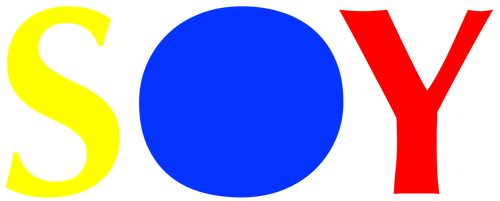Venezuela, its colorful culture and people.
In Venezuela the indigenous and African cultures were combined with the cultural contributions of immigrant societies that came from Europe. The integration which mainly took place in the Caribbean area, during the colonial period, led to the Venezuelan culture we know today.

Our music
The musical interests of the country are purely from the Caribbean. In Venezuela salsa, merengue and cumbia music are not only meant for dancing, but many also enjoy listening to it. One of the musical genres representative of the Venezuelan culture is the Jopopo and its main instruments; the harp, cuatro and maracas.
The most famous song in Venezuelan music is, "El Alma Llanera". It is widely known and used worldwide because its composition includes all musical notes. Making it appealing to musicians who want to take on the challenge of playing this complex, yet beautiful song. You can hear it in our main page.
Traditionally, Venezuelan music is characterized by mixing Spanish and African elements. It is worth mentioning that the national music genre is called llanera, and comes from the main plains of the country (Apure and Barinas).
Venezuelan musical traditions vary in every region. The joropo stands out in the plains, east and central regions. Gaitas are representative of the region of Zulia. The calypso, is popular in Bolivar. Tamunangue and the golpe, in Lara. The fulia, parranda and caraqueño merengue, in the central region. The margariteño polo and galerón, in the east, while the waltz, is popular in the Andes.

Literature
Literature in Venezuela was originally transmitted orally by the natives, some of which have been recorded today. Written literature began to develop during the time of the colony, chronicles and multiple styles of poetry were the main literary manifestations of the 1700s. After the independence, Venezuelan literature began to diversify, but it started to evolve rapidly in the era of Guzmán Blanco, between 1870 and 1888.
The beginning of the 20th Century saw the development of several writers, novelists, essayists and poets of importance. Such as, Andrés Eloy Blanco, Rómulo Gallegos, Luis Beltrán Prieto Figueroa, Arturo Uslar Pietri, Miguel Otero Silva, Mariano Picón Salas, José Rafael Pocaterra , among other literary figures.
Languages
Although the country is traditionally monolingual, many languages are spoken in Venezuela. The official languages recognized in the constitution are Spanish and the indigenous languages, which are more than thirty (guajiro, Warao, pemón, among others).
Immigrants besides Spanish, also spoke their own languages; mainly Italian, Portuguese, Arabic, English, Chinese and Galician among others.

Science and Technology
Several Venezuelan scientist have contributed remarkably to the technological, medical and natural sciences advances in the contry and the world. The vaccine against leprosy and leishmaniasis was developed by Jacinto Convit. While Baruch Benacerraf performed demonstrations on the immune responses to antigens and their variation in each person, which made him co-recipient of the Nobel Prize in Physiology or Medicine in 1980.
In technology, Humberto Fernández Morán developed the electron microscope and the diamond knife, the latter of his own invention, and was the first to introduce the concept of criolol-trachyrotomy.
The first documented technological advance by Venezuelans was the development of a clamp, which allowed to recover parts in the oil wells. The National Council of Scientific and Technological Research and the Venezuelan Institute of Scientific Research are the main references in these matters. All are attached to the Ministry of Science and Technology. Also the National Astronomical Observatory of Llano of the Hato, which stands 3,600 mts. above sea level.
Current work in the field of technology includes the development of the Venezuelan Electromagnetic Train, and the activation of Simón Bolívar I, the first Venezuelan satellite. Launched in 2008 it is expected to streamline communication services, telemedicine, and education in in the field of computer science.
